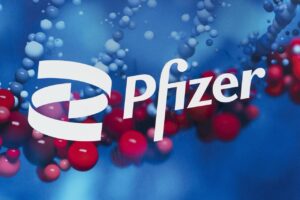ButSpeak.com
News which Matters.

Pfizer’s experimental gene therapy for Hemophilia A shows success in a late-stage trial, potentially paving the way for U.S. market approval.
Pfizer announced on Wednesday that its experimental gene therapy for hemophilia A has succeeded in a large late-stage trial, potentially paving the way for its approval. This treatment could become Pfizer’s second gene therapy to enter the U.S. market, following Beqvez, which was approved in April for hemophilia B, a less common bleeding disorder.
The therapy, developed in collaboration with Sangamo Therapeutics, aims to address hemophilia A, a lifelong disease caused by a deficiency in the blood-clotting protein factor VIII. This deficiency leads to improper blood clotting, increasing the risk of spontaneous and severe bleeding. Hemophilia A affects approximately 25 in every 100,000 male births worldwide.
In the trial, Pfizer’s one-time treatment significantly reduced the number of annual bleeding episodes in patients with moderately severe to severe hemophilia A from week 12 to at least 15 months. Additionally, it outperformed the current standard treatment of routine infusions to replace the missing Factor VIII protein. Dr. Andrew Leavitt, the lead investigator of the trial, emphasized the profound physical and emotional impact on patients who currently rely on frequent IV infusions or injections to manage their condition.
Pfizer’s success in the trial marks a significant advancement in the rapidly growing field of gene and cell therapies. These one-time treatments, though costly, target a patient’s genetic source or cells to cure or significantly alter the course of a disease, offering an alternative to traditional lifelong treatments for chronic conditions.
Following the announcement, Sangamo Therapeutics saw a nearly 40% increase in its shares, while Pfizer’s stock closed up more than 1%. The study is ongoing, and Pfizer plans to present additional data at upcoming medical meetings.
If approved, Pfizer’s gene therapy will compete with BioMarin Pharmaceutical‘s Roctavian, another one-time treatment for hemophilia A. Despite its approval in the U.S. last year, Roctavian has experienced a slow rollout, raising questions about the potential uptake of Pfizer’s therapy. BioMarin is reportedly considering whether to divest its hemophilia A therapy, which is priced at $2.9 million.
The success of Pfizer’s trial underscores the company’s commitment to innovation in the biotech and healthcare sectors, offering new hope for patients with hemophilia A and setting the stage for future advancements in gene therapy.